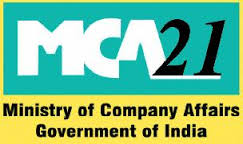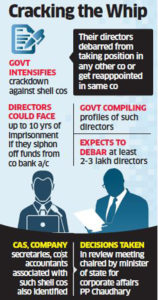
The Corporate Affairs Ministry has ruled out providing any relief for the 2.25 lakh de-registered companies and the 3.09 lakh disqualified directors, stating that these actions were caused by the ‘operation of law’.
“There is no proposal before us to provide any relief to them. No such issue is before us. The only issue before us and taking our attention is to get the pending Companies (amendment) Bill enacted by the Rajya Sabha,” PP Choudhary, Minister of State for Corporate Affairs, told BusinessLine.
The Ministry had de-registered 2.25 lakh companies and disqualified as many as 3.09 lakh directors for not filing financial statements for two or more years. Choudhary said that remedy for these two controversies are before the National Company Law Tribunal (in case of deregistered companies) and the High Courts (for disqualification of directors).
“There is no provision under the law to allow the government to resolve both the controversies. Our actions are by the operation of law enacted by Parliament. It is not within the domain of the government to provide relief without any explicit provision allowing for any relief,” he said.
He also highlighted that the de-registered companies and the disqualified directors had not opted to utilise the window of the Company Law Settlement Scheme in 2014 although it was available for nearly eight months.
Choudhary said the government, in future, could consider providing a departmental mechanism for resolution of grievance instead of going to NCLT for the de-registered companies.
Meanwhile, sources said that over ₹21,000 crore was deposited and withdrawn post-demonetisation by about 35,000 companies forming part of the 2.25 lakh de-registered companies. In one case, a company, which had a negative opening balance on November 8, 2016, deposited and withdrew ₹2,484 crore post-demonetisation. There was another company that had deposited ₹3,700 crore post demonetisation in one account, sources said.
Source: The Hindu Business Online







